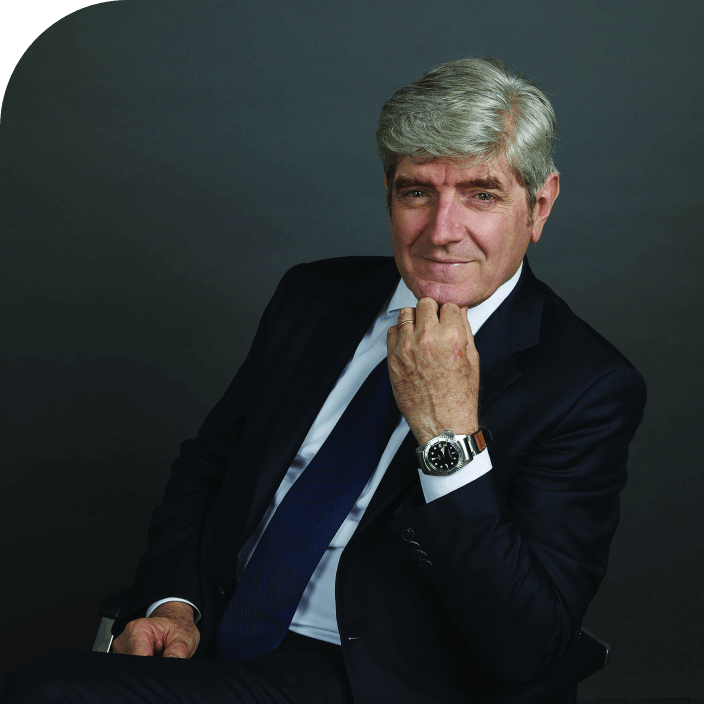
These are complicated months for those businesses that move within the international markets. The over-all scenario, which has been influenced by the consequences of geopolitical tensions and also in part by the effects of the pandemic crisis, has kept the temperature of uncertainty high. The critical issues at hand include the generalized increase in the prices of the most basic raw materials and their availability, transportation logistics and supply sources, which are increasingly fragmented and subject to new regulations.
As of this past May 15, I have the honor of having taken the reins of the Group as the CEO of Maire Tecnimont: an important step for which I personally thank Chairman Fabrizio Di Amato for his trust and shared purpose. As a multinational committed to managing a high number of challenges on the energy front, 2021 was a great test case in terms of flexibility and resilience: despite the Covid outbreak, the Group in 2021 managed to achieve one of its best financial years ever, with 6.4 billion euros in orders and an historical record backlog of 9.5 billion euros thanks to a substantial sequence of new projects. With this, Maire Tecnimont has demonstrated its strength of operating in different geographical areas and in sectors ranging from petrochemicals to green chemistry, with a particular focus on technologies related to the energy transition. This is an increasingly central topic given the dramatic unfolding of events at the beginning of 2022, which will see increasingly rapid changes in the scenario and even more ambitious diversification goals at the international level.
In my previous position as CFO, I helped to build a strong link between our Group’s industrial strategy and the strategy for sustainability, with growth objectives based not only on financial and economic considerations, but also on their environmental, social, and governance impact. While financial stakeholders have already recognized the soundness of our approach, today as CEO I can confirm the sustainability strategy that we have put in place and our willingness to achieve the defined goals through the implementation of all the ESG agenda actions described in our Sustainability Report. In the year that has just ended, we wanted to translate all of this into a major challenge: creating a strategy inspired by the United Nations Sustainable Development Goals, intertwined with our business plan and ESG principles. Indeed, to successfully look forward, we need to combine efforts on not only the technological front, but on the organizational and cultural fronts as well.

WHILE FINANCIAL STAKEHOLDERS HAVE ALREADY RECOGNIZED THE SOUNDNESS OF OUR APPROACH, TODAY AS CEO I CAN CONFIRM THE SUSTAINABILITY STRATEGY THAT WE HAVE PUT IN PLACE AND OUR WILLINGNESS TO ACHIEVE THE DEFINED GOALS THROUGH THE IMPLEMENTATION OF ALL THE ESG AGENDA ACTIONS DESCRIBED IN OUR SUSTAINABILITY REPORT..
In this issue of EVOLVE, together we all tried to imagine the future of energy in the world of tomorrow, with our different readings of the scenario and their impact on the evolution of business models. Knowing that the investment planned for the energy transition between now and 2050 will be massive – more than 15 trillion dollars, 11 of which are earmarked for renewables – it will be up to industries, even more so than governments, to become the main engine of this revolution in the name of the green economy. All the more reason – taking note of the fact that the pandemic has imposed a new direction on industrial cycles – we must make sure that we are prepared for changes of this magnitude, acting both as promoters and actors in the transition.
ISSUE 8 – December 2020

For several years now, Maire Tecnimont has maximized its commitment to accelerating the energy transition, digitalization, open innovation and the creation of value for the local communities. On the basis of the principles of ESG – Environmental, Social and Governance, the three central factors in measuring the sustainability of an investment – Maire Tecnimont has expanded the department dedicated to Sustainability, creating a task force devoted to CO2, a Diversity, Equality & Inclusion Working Group and several working groups to develop project ideas on issues such as climate and environment, people, innovation and well-being, and communities and territories.
Another step towards the green evolution of future business is called NextChem, the company of the group which specializes in the development of new processes, technologies and products from non-fossil fuels and renewable energy sources. If we look at the evolution of industrial cycles, we realize how green chemistry is a true accelerator of the energy transition: in fact, with NextChem, Maire Tecnimont is looking toward the future with the aim of achieving a circular and low-carbon economy. The idea of the circular district stems first and foremost from the existence of disused or brownfield sites that can be given a new industrial vocation. Given the decarbonization targets, in a linear economy, these infrastructures – including the workforce and the supply chains in the allied industries – would have no future: but this is where our entrepreneurial ability to look toward the future comes into play, trying to connect territories that have a purpose or a product. While up until now the world’s supply has come from hydrocarbons, as of tomorrow it could come from waste: and there is a mountain of it, it is zero kilometer and easily recyclable, thanks to the technologies developed by NextChem.
Maire Tecnimont’s vision holds a prominent place for big data and the development of the digital economy, which is changing the face of present and future companies on the entire planet. In support of the energy transition, our Group helps clients on five continents achieve their decarbonization goals by leveraging digital technologies: the goal is to become competitive by creating value, both during the EPC phase and in the operation of plants. Therefore, with the digital solutions and services of the NextPlant platform, Maire Tecnimont guarantees the realization of digital-native plants from the design phase to commissioning.
As you scroll through the pages of this issue, you will discover the origins and philosophy of EVOLVE, Maire Tecnimont’s new Foundation. As Chairman Di Amato explained, in the same way that the magazine EVOLVE – in its role as an incubator of ideas – has suggested a sense of continuity with its very name, the Foundation itself was born not as a generic institution of vertical themes, but as an additional laboratory of events and initiatives at the service of the education of tomorrow’s humanistic engineers. Finally, this magazine has reached its four-year anniversary and is growing stronger as a cultural and creative tool to keep the spirit of Mottos alive, those eight distinctive pillars that define the corporate culture of a forward-looking Group. Undertaken with great commitment and awareness for the challenges ahead.
Human and artificial, the tomorrow that lies ahead
THE MAIRE TECNIMONT GROUP MAGAZINE EDITED BY Group Institutional Relations, Communication & Sustainability
Court of Milan registration - N.338 on the 06/12/2017
Carlo Nicolais
EDITORIAL COORDINATOR
Massimo Dapoto
PROJECT AND DESIGN
Cultur-e www.cultur-e.it
EDITOR
Maire Tecnimont Spa
Registered Office
Viale Castello della Magliana, 27 - 00148 Roma - Italia Operative Headquarters
Via Gaetano De Castillia, 6A - 20124 Milano – Italia
Issue completed: 16/06/2022
The rights due for published texts are available for all parties that we were not able to contact.














